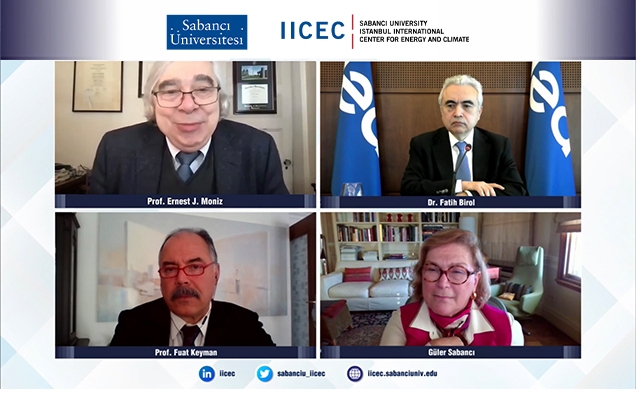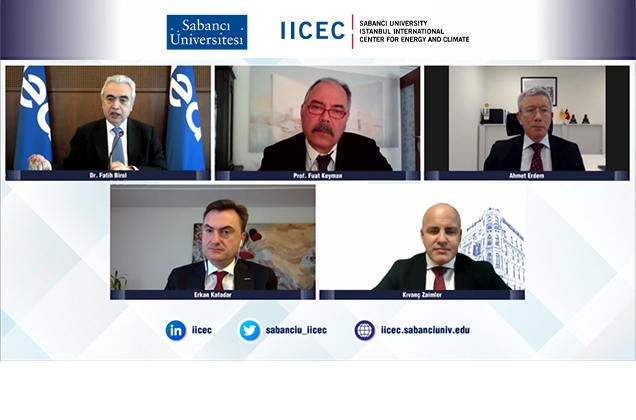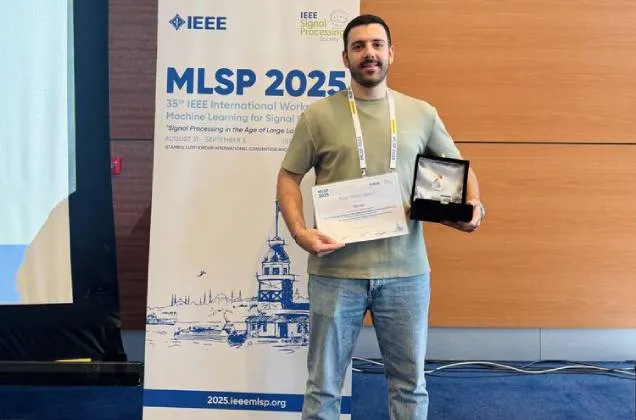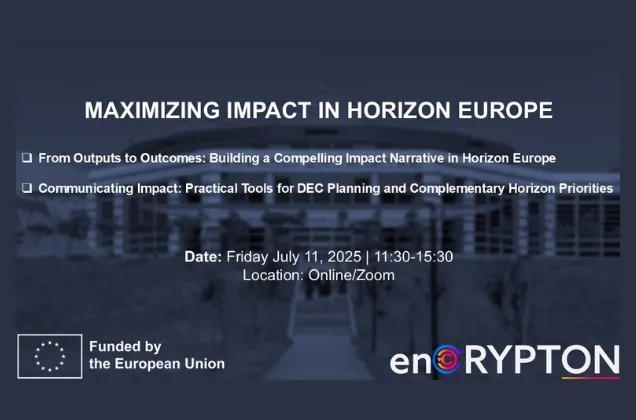02/03/2021
ALL COUNTRIES MUST ACT IN CONCERT TO ACHIEVE NET ZERO CARBON EMISSION BY 2050

Sabancı University Istanbul International Center for Energy and Climate (IICEC) held a webinar titled “A New Era in Global Energy and Climate Policies: What is Next with the New US Administration?”. Introductory remarks were made by Sabancı University Founding Board of Trustees Chair Güler Sabancı, followed by International Energy Agency Director Dr. Fatih Birol, who shared the “Global Perspective” on energy and climate relations. The guest of honor of the event was Prof. Ernest J. Moniz, who served as the 13th Secretary of Energy under the Obama Administration.
Saying that the new US administration would implement an extensive policy in climate change and clean energy technologies, Prof. Moniz stated, “This fight is decisive for reaching the net zero emission target. It is a crucial action. Everyone in the Biden Administration has joined forces to make this a reality."
Also speaking in the webinar, International Energy Agency (IEA) Director Dr. Fatih Birol stated the importance of innovation and clean energy solutions as a global approach to fighting climate change, saying "One of two vehicles sold worldwide must be electric if we are to achieve zero emissions.”
Sabancı University Istanbul International Center for Energy and Climate (IICEC) held a webinar titled “A New Era in Global Energy and Climate Policies: What is Next with the New US Administration” on Tuesday, February 23. In her introductory remarks to the webinar, Sabancı University Board of Trustees Founding Chair Güler Sabancı expressed her delight that IICEC held this special webinar with distinguished speakers to take the lead in the discussion of energy and climate issues at just the right time. Güler Sabancı continued:
“I owe personal thanks to Secretary Moniz, who is with us here today, for inviting me to the forward-looking MIT Energy Initiative founded under his distinguished academic leadership. His tenure as US Secretary of Energy in the Obama Administration was illustrious: has had extraordinary success in propagating clean energy, science, innovation and technology, while also earning strategic wins. I would like to thank Secretary Moniz for his support in Sabancı University and IICEC, and for joining us from the United States at a very early time for him to avail us of his extraordinary wisdom and observations on a critical subject that is high on the agenda of the new US administration.”
Güler Sabancı thanked Dr. Fatih Birol and all speakers joining the webinar, emphasizing the leading role that the IEA has been playing under the Directorship of Dr. Birol in the transformation to clean energy across the world, continuing, “Just recently, Dr. Birol announced the first comprehensive roadmap that the International Energy Agency would prepare for the global energy industry to show the path to achieving net zero emission by 2050. Above all, this special IICEC webinar is doubly important because it comes right after Dr. Fatih Birol’s address to the US Energy and Natural Resources Commission.”
NEW IICEC PROJECT: TURKEY ELECTRIC VEHICLES OUTLOOK
Güler Sabancı said that energy and climate were among special and priority interests of Sabancı University, which was why IICEC was established 10 years ago to act as a common platform for policymakers, the industry and academia to take consistent steps towards a better future. Reminding IICEC’s work in a "Triangle of Success" with policymakers, the industry and academics to issue the Turkey Energy Outlook report, Güler Sabancı said, “This report met a crucial need in the Turkish energy sector and became a work of reference for all stakeholders. I am delighted to see IICEC grow and gain influence. Another ambitious project by IICEC this year will be the Turkey Electric Vehicles Outlook. The report will provide a comprehensive analytical perspective into electric vehicles and the e-mobility ecosystem and growth potential in Turkey. The report is due for this fall."
BIDEN ADMINISTRATION TO CONTINUE FIGHTING CLIMATE CHANGE
Former US Secretary of Energy Prof. Ernest J. Moniz noted that the US was rejoining the Paris Agreement under the Biden Administration, continuing, “We must fulfill our international commitment. We have April 22 Earth Day just ahead of us. We will take joint action to achieve the target of net zero carbon before COP26 Glasgow.” Prof. Moniz said that the new US administration would implement an extensive policy in climate change and clean energy technologies, and set national commitments to fight climate change. Prof. Moniz stated, “This fight is decisive for reaching the net zero emission target. It is a crucial action. Everyone in the Biden Administration has joined forces to make this a reality. Great steps will be taken institutionally. Technology and innovation will receive ample support."
Saying that the path to the Glasgow COP26 climate conference in November will be an exciting one and emphasizing that net negative emissions must be achieved within the century, Prof. Moniz emphasized the rapid growth of electric vehicles in the US, remarking "This growth is not only because we have an administration that encourages electric vehicles. The industry is leaping in bounds as well. So buckle up, because the electric vehicle revolution is about to take a turn into the fast lane."
ZERO EMISSIONS REQUIRES THAT ONE OF TWO VEHICLES SOLD IS ELECTRIC
In his keynote titled "Global Perspective," International Energy Agency (IEA) Director Dr. Fatih Birol spoke about the leading dynamics, opportunities and necessary steps in energy and climate worldwide. Dr. Fatih Birol noted that energy and climate change were closely related, continuing, “We cannot solve the climate problem before addressing issues in the energy industry. The energy industry is responsible for 80% of the emissions that cause climate change." Emphasizing that the destructive impact of climate change would be several times worse than COVID-19, Dr. Fatih Birol said, “There are promising developments such as renewable energy. Many countries including Turkey have advanced greatly in this area. A lot of countries put special incentives for clean energy in their economic packages. However, countries doing a good job is not enough to solve the problem. We need to come up with a global solution."
Saying that a number of governments have made commitments to achieve zero emissions by 2050 and intend to reach an agreement in the COP26 summit to be held in November to lead the world on the right path, Dr. Birol pointed out that the IEA would reveal the first-ever global roadmap for net zero emission in May, and that everyone would benefit from the world achieving net zero by 2050, continuing:
“The magic word in the relationship between energy and climate is innovation. We need extensive, comprehensive innovation to bring all the required technologies to the market. It is impossible for this tidal wave not to hit Turkey. The industry needs to take lessons from developments around the world. We need to read the game in real time, and prepare our economy and energy industry accordingly."
Placing special emphasis on electric vehicles as a means to reduce worldwide emissions to zero, Dr. Birol said, “One of two vehicles sold must be electric if we are to achieve zero emissions. Right now, only three out of 100 vehicles sold are electric at best. Some countries have already banned the sale of conventional vehicles; others may soon follow suit. Electric vehicles are garnering attention in Turkey, but it is not there yet. Turkey took important steps with TOGG, but the Turkish automotive industry needs to think about what more it can do about the electric vehicle revolution.”
BUSINESS PANEL
The event continued with a panel on business moderated by Sabancı University Vice President Professor Dr. Fuat Keyman. Panelists were Borusan Holding CEO Erkan Kafadar, Shell Turkey Country President Ahmet Erdem and TÜSİAD Energy Working Group Chair Kıvanç Zaimler.

Borusan Holding CEO Erkan Kafadar noted that automotive was Turkey's number one export, saying: “We all need to work together to transform the internal combustion engine industry. It is crucial that we create a shared definition of transformation in the industry, government and university. The transformation must be supported with a network of charging stations and electricity distribution. There will be a general need for financing to undertake transformation in energy. We have to have access to low-interest, long-term eco funding programs offered by Europe. Eco funding is what will support technology and innovation.”
Shell Turkey Country President Ahmet Erdem said that Shell’s approach to energy transformation was clear, and that they had drawn the roadmap to reach the zero emission target in the Paris Agreement. Stating that they intended to supply more clean energy to the world, Ahmet Erdem continued, “The energy system will transform one way or another - the question is when. All industries, all countries will progress at their own pace, but we must act quickly. All countries must do this. All companies and institutions must envision shared roadmaps that will lead to zero emission. We need predictable policies in areas that require long-term investment. Key stakeholders must act in unison to achieve net zero emission.”
TÜSİAD Energy Working Group Chair Kıvanç Zaimler stated their objective at the TÜSİAD Energy Working Group was to develop competitive, innovative, environmentally compatible, specific and actionable recommendations to support sustainable growth in energy, continuing: “The transformation and development of the energy sector in Turkey and the world goes on at a rapid pace. The energy ecosystem is growing all the time. As the transformation occurs, we need to consider all aspects of it together: the consumer, innovation, and environment. As megatrends quicken the pace of transformation with climate and technology, the notion of sustainability rises to the foreground. Climate and technology are at the core of energy transformation, which started with three Ds: decarbonization, digitalization, and distributed energy. In the TÜSİAD working group, we support this transformation under four subjects that we communicate with focus on sustainability. First is market-focused efficient growth. Second is renewable transformation. Third is technology, and fourth is consumer. We strive to support a safe and sound transformation by discussing and sharing these issues with public authorities and the general population."
Record of the “A New Era in Global Energy and Climate Policies: What is Next with the New U.S. Administration?” webinar can be watched below.




